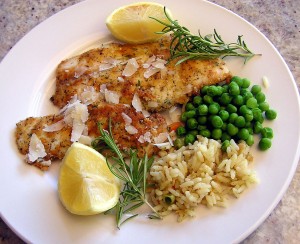
Green Regional Food Experiences (GRO) is the translated name for ‘Grønne Regionale madOplevelser’ or ‘GRO’. GRO is a project which aims create growth in the Zealand region in Denmark, by innovating and educating within the food sector. GRO is a concerted effort to create business opportunities, development and growth through new ways of thinking about the food sector. The Innovation in Service and Experience research group at Roskilde University played an influential role in determining which areas have the most potential. Jon Sundbo who works within experience economy research, has been the leading spokesman on behalf of the ISE group and has been involved in the release of a new handbook.
The project has identified a sector for growth which has been labelled the ‘specialized gastronomic’ (højgastronomisk) sector. This sector includes small businesses who have specialized production processes and specialized distribution systems, such as specialized cherry wine production that ships to China. It is the diversity of this sector, which underpins the large potential for growth. There are many highly different businesses which may not be able to generate many new jobs individually, but collectively this sector and all the businesses together create the best opportunity for growth and jobs in the Zealand region. Products vary between each business and are often very niche in the specialized gastronomic sector, which is in contrast to the highly technological food sector in which products are standardized and mass produced.
The GRO project has attempted to create a general vision for development in the food related businesses in regional Zealand. The identified specialized gastronomic sector will now be the subject of further strategy, and will hopefully create growth in the region. To illustrate how exactly this potential may look in practice, please consider the example of a cherry wine producer. The business uses 10% of a plot of land by Frederiksdal outside of Copenhagen, yet their turnover is just as big as the remaining 90%, which is grown using traditional farming methods. In the long term the turnover of the cherry wine producer is expected to be seven times higher. This clearly serves to illustrate a significant potential for both growth and more efficient land yield.
There are many types of businesses like the cherry wine producer in regional Zealand, and together they have the ability to answer the demand for food experiences which has been identified by GRO. This project shows an initiative being taken within the experience economy and the effort being made to explore the potential within the experience economy. This vision expressed in this article will be followed up with an overview over a practical strategy and handbook which business may use in order to fulfill this vision.
In order to consolidate the project and provide an opportunity to get first hand insight into the value and significance of the project, there will be a seminar on the 24 June at Roskilde University. The seminar will take place from 10-15.00, and in order to attend you are asked to contact Jesper Zeilund at jze@ruc.dk.
